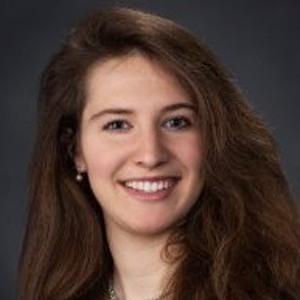
Devan Tracy ’13
Energy Engineer
Devan Tracy designed her own role as an energy engineer at Lockheed Martin, focused on eradicating the world’s addiction to excessive, non-renewable energy consumption. Most recently, she is responsible for 6,525 megawatt hours per year of onsite solar power development, the equivalent of powering 606 U.S. households. She holds a MEng degree in sustainable systems engineering from the University of Wisconsin-Madison and a BS degree in mechanical engineering from Binghamton University. An Engineer in Training (EIT), Energy Manager in Training (EMIT) and Leadership in Energy and Environmental Design (LEED) Accredited Professional, Tracy is also a Spotify-streaming, acoustic-folk/pop singer-songwriter and performer in classical percussion who also specializes in jazz drumming, hand-drumming, marching tenor drums, keyboard and ukulele. During her college career, Tracy opened for the Lumineers (via the transitive property). In her free time, she tours on bicycle, including trips to circumnavigate Iceland and traverse the United States.
TEDx Talk – The extinction of sustainability
Imagine a world where the word sustainability doesn’t exist. Not because it’s not an important concept, but the exact opposite – because it’s so important it becomes redundant, completely embedded into the way we operate as a society. How do we get to that point? We need to open doors that may seem locked shut on the surface to uncover unlikely opportunities – like energy conservation and renewable energy deployment within the military, the world’s single largest consumer of energy. Tracy will explain the scale of the energy crisis and illustrate why we can’t keep waiting on the world to change.
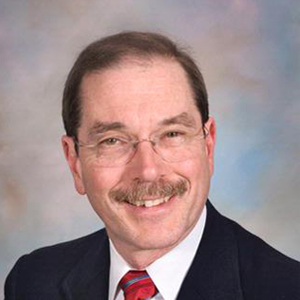
Richard Kreipe
Medical Director for Eating Disorders
As a board-certified pediatrician and adolescent medicine specialist at the University of Rochester, Dr. Richard Kreipe, MD, has applied the biopsychosocial approach developed more than 50 years ago. Rather than dichotomize illness into medical or psychiatric domains, the approach considers all levels of the “person” — from molecules to community — to be dynamically interactive. This approach is guided by an ecological framework, recognizing that young people have a powerful influence on their environment (including parents, siblings, family, peers, school, neighborhood, etc.) and their environment profoundly influences their growth and development with potentially long-lasting effects. In 1985, Kreipe established the interdisciplinary Child and Adolescent Eating Disorder Program in Pediatrics at the University of Rochester. He has served as the medical director of the New York State Department of Health’s Western NY Comprehensive Care Center for Eating Disorders since its inception in 2005, covering a 30-county area. His best teachers have been patients and their families.
TEDx Talk – Eating disorders through a developmental, not mental, lens
What image comes to your mind when you hear the term anorexia nervosa? Historically, eating disorders have been viewed in predominantly negative terms as “mental” disorders, most commonly occurring in females 10 to 25 years old. Kreipe’s perspective emanating from the integration of concepts of human ecology, the normal “tasks of adolescence” and brain development yields a more comprehensive approach that facilitates treatment acceptance and eschews negative stereotyping often applied to patients with an eating disorder and their families. Whatever image is in your mind with respect to eating disorders will be challenged by this presentation.
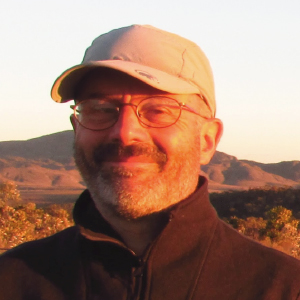
Guy Laramée
Interdisciplinary Artist
During 35 years of practice, interdisciplinary artist Guy Laramée has created in varied and numerous disciplines including theater writing and directing; contemporary music composition; musical instrument design; and building, singing, video, scenography, sculpture, installation, painting and literature. He has received more than 30 arts grants and was awarded the Canada Council's Joseph S. Stauffer award for musical composition. His work has been presented in the United States, Europe, Japan and Latin America. From the late ’90s to the early 2000s, Laramée realized that the visual arts was where he could more easily explore his long-standing interest for modes of consciousness. Studies in ethnology helped him refine an anthropology of the artistic condition, from which emerged his project “Biblios,” which, with his subsequent “book landscaping” won him international recognition. His book sculptures now travel extensively among American museums and are included in numerous prestigious publications.
TEDx Talk – No outside
What is art? Where does it come from? How can it help the world? What keeps artists going in spite of uncertainty, adversity and failures? In this presentation, artist Laramée will try to see if our addiction to ideas might be responsible for some misconceptions regarding art. Using his own work – both in anthropology and in visual art – he will guide us through a journey that, although personal, is not only his own. Through the story of his now famous “book landscaping,” Laramee will try to give us back the keys to art and to ourselves.
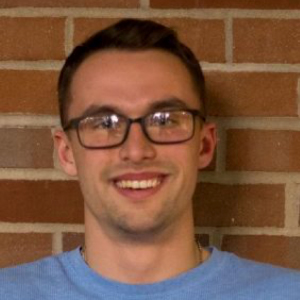
Stone Geise
Undergraduate Student
Binghamton University senior biochemistry major Stone Geise is a very active student on campus outside of academics. In his second year as a resident assistant (RA) in College-in-the-Woods, where he serves as both a mentor RA to new RAs and as a member of the committee responsible for planning the semesterly RA training program, he also serves as the operations coordinator assistant in Residential Life, doing tasks ranging from inventory to tuning pianos. Highly involved in the University’s greater a capella community, he has been a member of Note to Self, the University’s community service a capella group, for three years. The beat boxer for the group, he is also in his second year as the group’s musical director, running rehearsals and writing their music. Music is a big part of his life and he can regularly be seen playing piano, singing or writing music. He comes from Niagara County, N.Y. (even though his closest friends will try to convince you he’s actually from Canada). He hopes to pursue a career as a physician.
TEDx Talk – Live your life half empty
Is the glass half full or half empty? It’s a question that has been around for seemingly forever with its connotation of both optimism and pessimism. However, I challenge you to reconsider this age-old idea and flip your perspective on it. I urge you to see a glass half empty as a positive and join me in questioning the common analogy to pessimism, because a glass half empty is better than a glass half full.
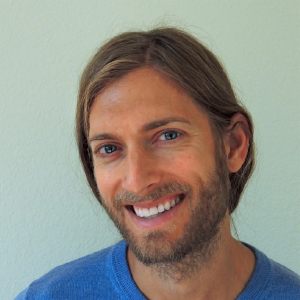
Andrew Taggart
Practical Philosopher
Andrew Taggart is a practical philosopher. He asks and seeks to answer the most basic questions of human existence with others around the world. In this capacity, he speaks daily over Skype with business executives and tech entrepreneurs throughout the U.S., Canada and Europe about the nature of a good life. During the past six years, he began to notice that work had come to be central in the lives of those with whom he spoke and that they were suffering as a result. “Total work,” a term coined by the philosopher Josef Pieper, is the process by which human beings are transformed into workers as work comes to engulf all other aspects of life. To discover how total work arose and in hopes of diminishing unnecessary human suffering, Taggart is currently writing a book on the subject.
TEDx Talk – How work took over the world
Total Work, a term coined by the German philosopher Josef Pieper just after World War II, is the process by which human beings are transformed into workers as more and more aspects of life come to resemble work. In this talk, Taggart will tell the dramatic story of how work took over the world, what total work means for us, what effects it's had on our lives and how we can wake up from our dogmatic slumber.
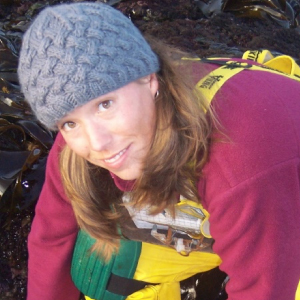
Sarah Dudas
Biologist at Fisheries and Oceans Canada
Sarah Dudas is a biologist at Fisheries and Oceans Canada, a biology professor at Vancouver Island University and an adjunct assistant professor at the University of Victoria. For the last seven years she has led the Ecological Interactions Research Program, working with federal and provincial governments, industry and non-profit organizations to study the effects of human activities on coastal ecosystems. Her research includes investigating marine biodiversity across regional and local scales and the effects of historical and contemporary shellfish farming practices on surrounding ecological communities. Recently, she has focused on the issue of microplastics and their presence in the marine environment and our seafood. Dudas’s professional affiliations include the Hakai Institute, Canadian Society of Ecology and Evolution and the Aquaculture Association of Canada. She is also a member of the United Nations-led Joint Group of Experts on the Scientific Aspects of Marine Environmental Protection microplastics working group.
TEDx Talk – Microplastics are everywhere
We live in a world of plastic. From the clothes we wear, the electronics we use to the food we buy, our lives our surrounded by, and depend on, plastic products. Over time, all of these plastic products break down into smaller and smaller pieces to become ‘microplastics,’ or plastics smaller than five millimeters. As we study microplastics, we are learning that they are everywhere – in the air we breathe, the water we drink and the food we eat. In this talk, Dudas will lead us through a day of plastic use, how and where we use and generate microplastics, and what we can do about it.
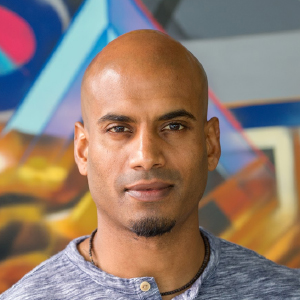
Raj Jayadev
CEO at Silicon Valley De-Bug
Raj Jayadev is co-founder of Silicon Valley De-Bug, a community organizing and advocacy organization based in San Jose, Calif. Through De-Bug's Albert Cobarrubias Justice Project, De-Bug created "participatory defense,” a methodology for families whose loved ones are facing the criminal court system aimed at impacting the outcome of the cases and changing the landscape of power in the courts. De-Bug has incubated participatory defense hubs across the country and is building a National Participatory Defense Network of community organizations to partner with public defender offices and make systemic change in the courts. Jayadev’s community organizing and writing have been featured in The New York Times, The Atlantic, Time.com and media outlets across the country. He is an Ashoka Fellow, Rosenberg Leading Edge Fellow and a Social Entrepreneur in Residence co-teaching a course on social innovation at Stanford University. In 2017, he was also listed on the Nonprofit Times “Power and Influence” Top 50 List.
TEDx Talk – How community transforms the courts
Participatory defense is a new, national community organizing approach for families whose loved ones are facing the criminal court system aimed at impacting the outcome of their loved ones' cases and transforming the landscape of power in the courts. The methodology was created in San Jose, Calif., by the community organization Silicon Valley De-Bug, which now trains organizations nationally on how to implement the practice. Currently, over 20 cities nationwide have been trained in participatory defense, and are using the framework to win dismissals and acquittals and significantly reduce sentences. As of 2018, participatory defense communities have accounted for 2,418 years of time saved from incarceration through the work. De-Bug organizer Jayadev will explain the story and possibility of participatory defense, and how the work is part of a larger aim to end incarceration.
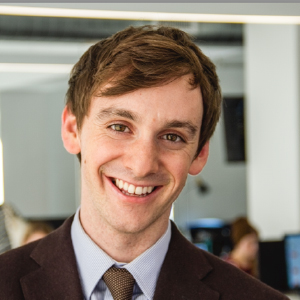
Derek Thompson
Senior Editor at The Atlantic
Derek Thompson is a senior editor at The Atlantic, where he writes about economics, technology and media. He is a news analyst with NPR's afternoon show “Here and Now," appearing weekly on Mondays, and an on-air contributor to CBS News. The recipient of several honors, including the 2016 Best in Business award for Columns and Commentary from the Society of American Business Editors and Writers, he is the author of the national bestselling book Hit Makers: How to Succeed in an Age of Distraction.
TEDx Talk – The science of popularity
Why do we like what we like? Raymond Loewy, the father of industrial design, had a theory. He was the all-star 20th-century designer of the Coca-Cola fountain and Lucky Strike pack; the modern sports car, locomotive, Greyhound bus and tractor; the interior of the first NASA spaceship; and the egg-shaped pencil sharpener. How did one man understand what consumers wanted from so many different areas of life? His grand theory of popularity was called MAYA: Most advanced yet acceptable. He said humans are torn between two opposing forces: neophilia, a love of new things; and neophobia; a fear of anything that’s too new. Hits, he said, live at the perfect intersection of novelty and familiarity. They are familiar surprises. In this talk, I’ll explain how Loewy’s theory has been validated by hundreds of years of research — and how we can all use it to make hits.